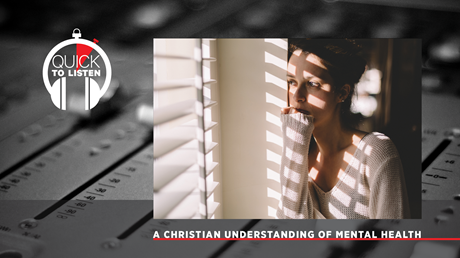And how psychiatry and psychology came to be seen as anti-God.

Is suffering from mental illness the result of personal sin?
Last week, many Christians felt two prominent evangelical ministries affirmed that this was the case.
At last week’s evangelical women’s conference the IF Gathering, speaker Rebekah Lyons, in telling about her daughter’s anxiety attacks, suggested that mental illness could be healed through prayer.
The incidents at IF occurred several days after John Piper’s Desiring God ministry tweeted “We will find mental health when we stop staring in the mirror, and fix our eyes on the strength and beauty of God.” Nearly 500 people responded to the tweet, saying that the message implied that counselors and medication were unnecessary to cure mental illness.
Both ministries later distanced themselves from these comments. IF Gathering founder Jennie Allen later clarified that the ministry supports counseling/medication and doesn't think mental illness is sinful. Desiring God apologized for “leaving off the link that gives the context quoting Clyde Kilby from more than 40 years ago when ‘mental health’ didn’t have the same technical connotations as today.”
This link between mental illness, sin, and spirituality “isn’t really a Christian or religious idea,” says Amy Simpson, the author of Troubled Minds: Mental Illness and the Church’s Mission.
“It’s really rooted in superstition and a misunderstanding of what mental illness is,” said Simpson.
In the 20th century, psychiatry and psychology were heavily secular practices and Sigmund Freud saw religion itself as a form of neurosis.
“Many people responded to that, distancing themselves from psychiatry and psychology and thinking …
Source: Christianity Today Most Read